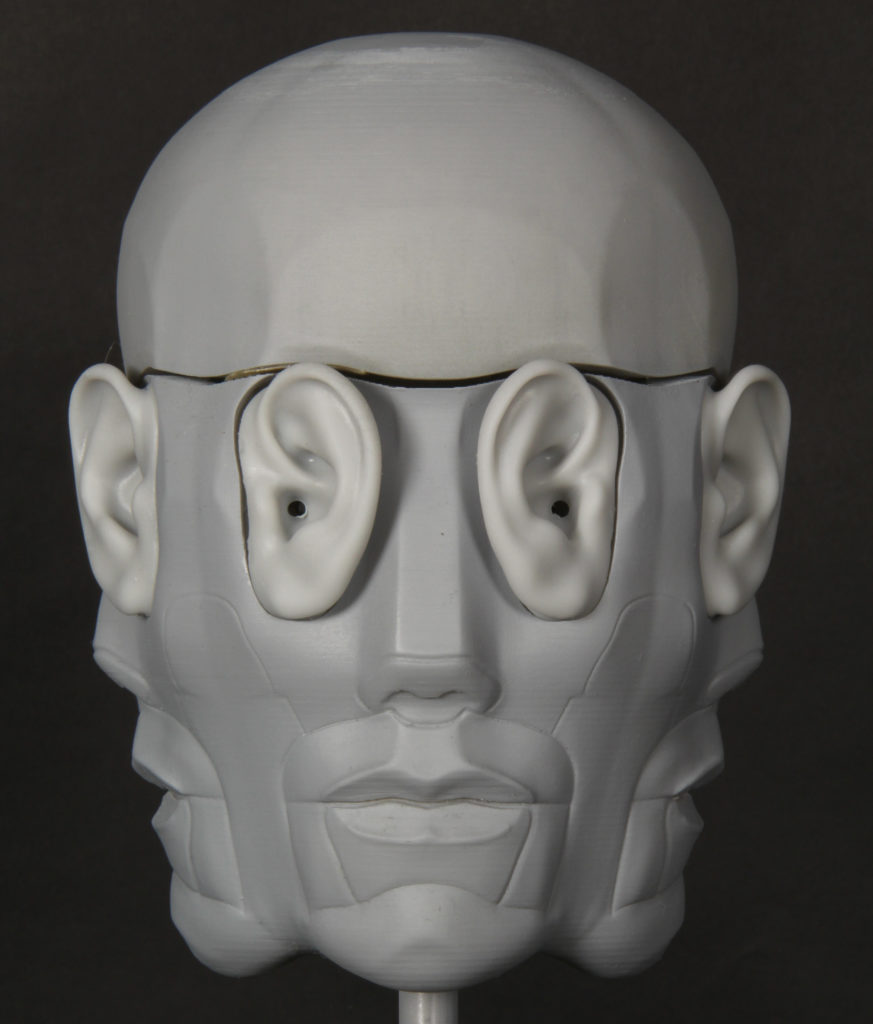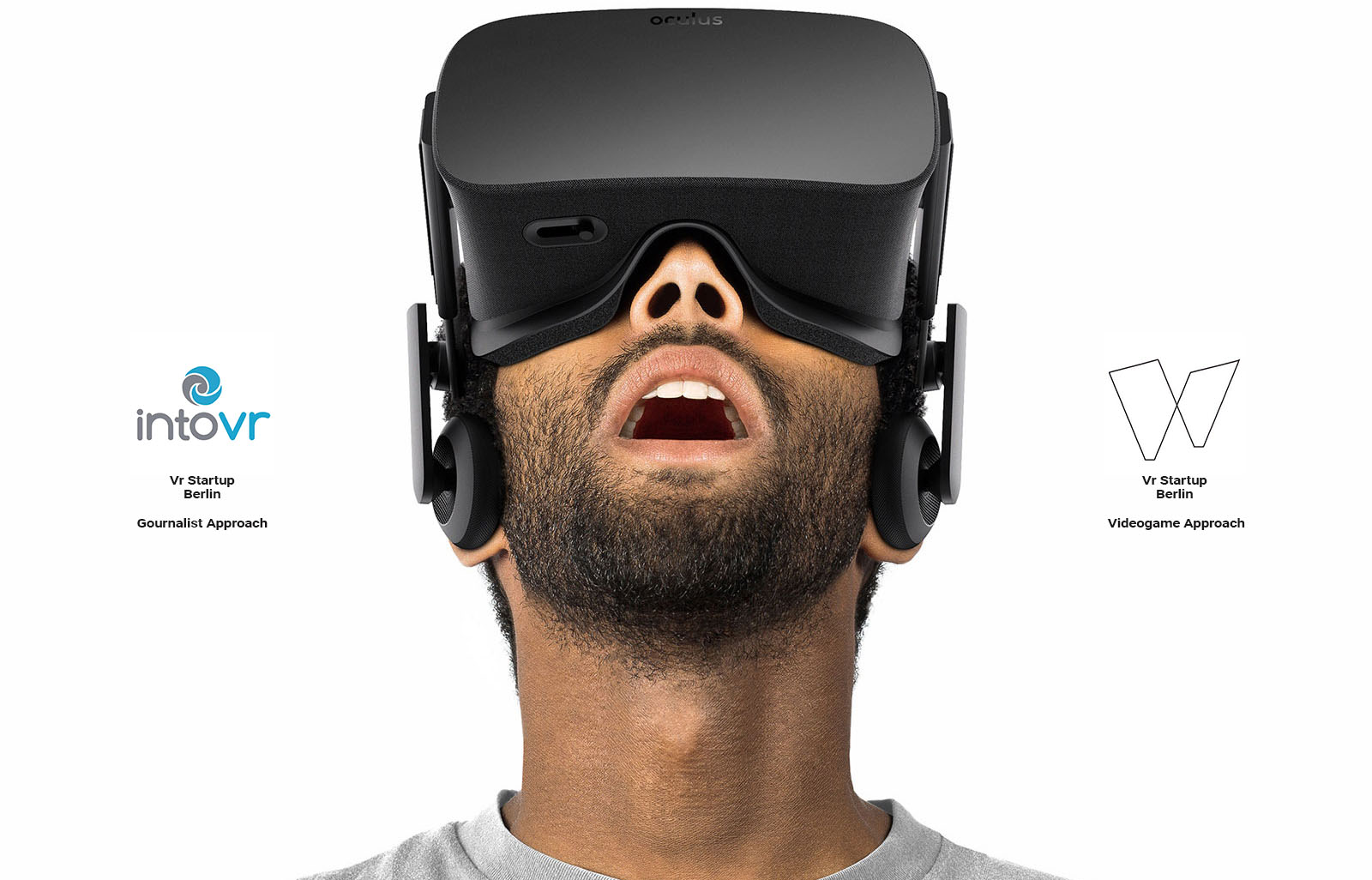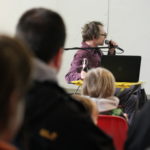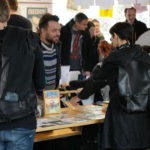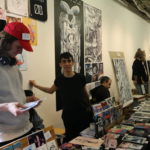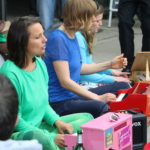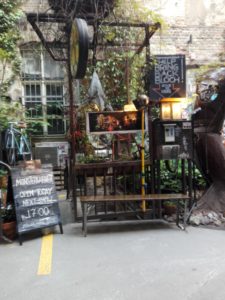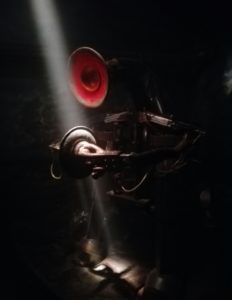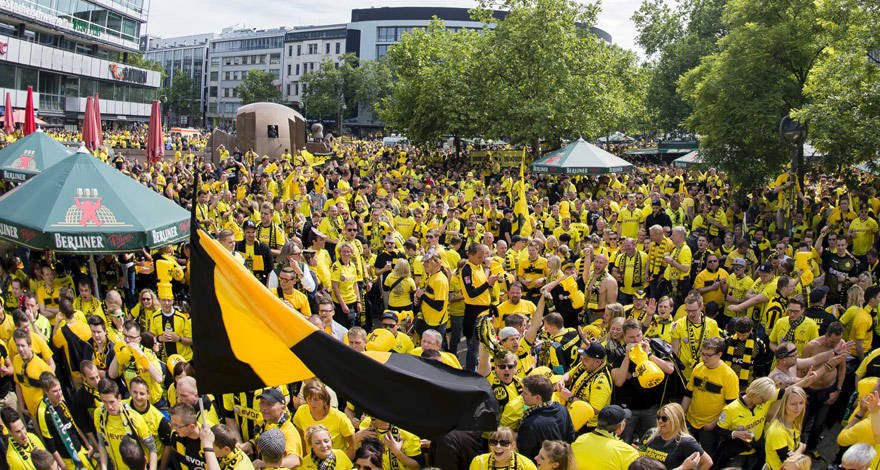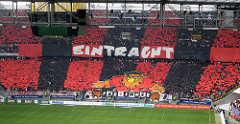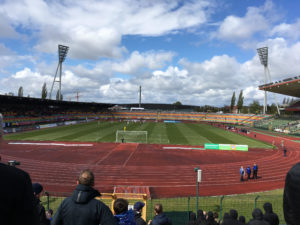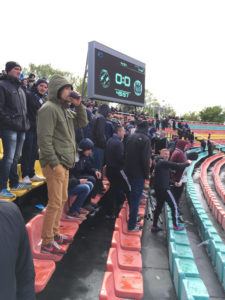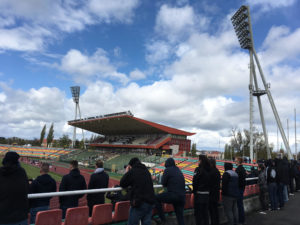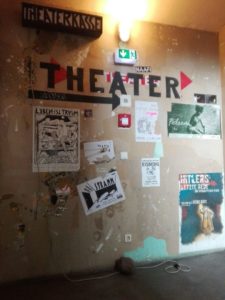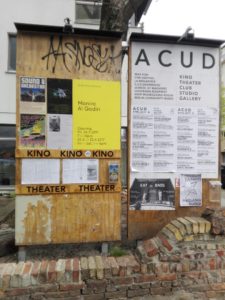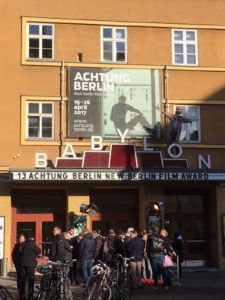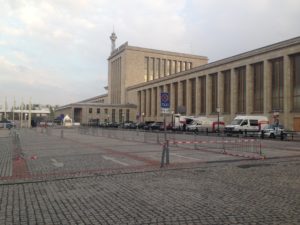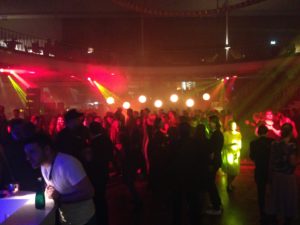Bots are everywhere on the web, working behind the scenes to automate tasks so that they are completed quickly and efficiently, and are relatively easy to create. It is estimated that bots drive 62% of web traffic, working in areas like search engines to execute functions much faster than any human could. Because of how easy they are to create, they can be easily mistaken for real people on platforms with simple formats such as Twitter. This can be fun, like a Twitter bot that tweets out a new recipe everyday, or something more sinister. For this project we’ll focus on the more sinister uses of bots on Twitter, specifically on the use of political bots and how they can influence political elections. A recent study estimates that between 9 and 15 percent of all active users on Twitter are bots, and during the election they are thought to have been responsible for around 3.8 million tweets over a month, or about 1/5 of the entire political conversation during that time. This is a particularly salient topic after the U.S. election, where bots are thought to have influenced the outcome, and before the German election, which is coming up in September. From recent studies, it seems as if political bots are not as big of a problem in Germany as they are in the U.S., but their influence will likely only increase.
A study looking at the percentage of tweets coming from bots, or high frequency accounts, during the presidential elections in Germany:
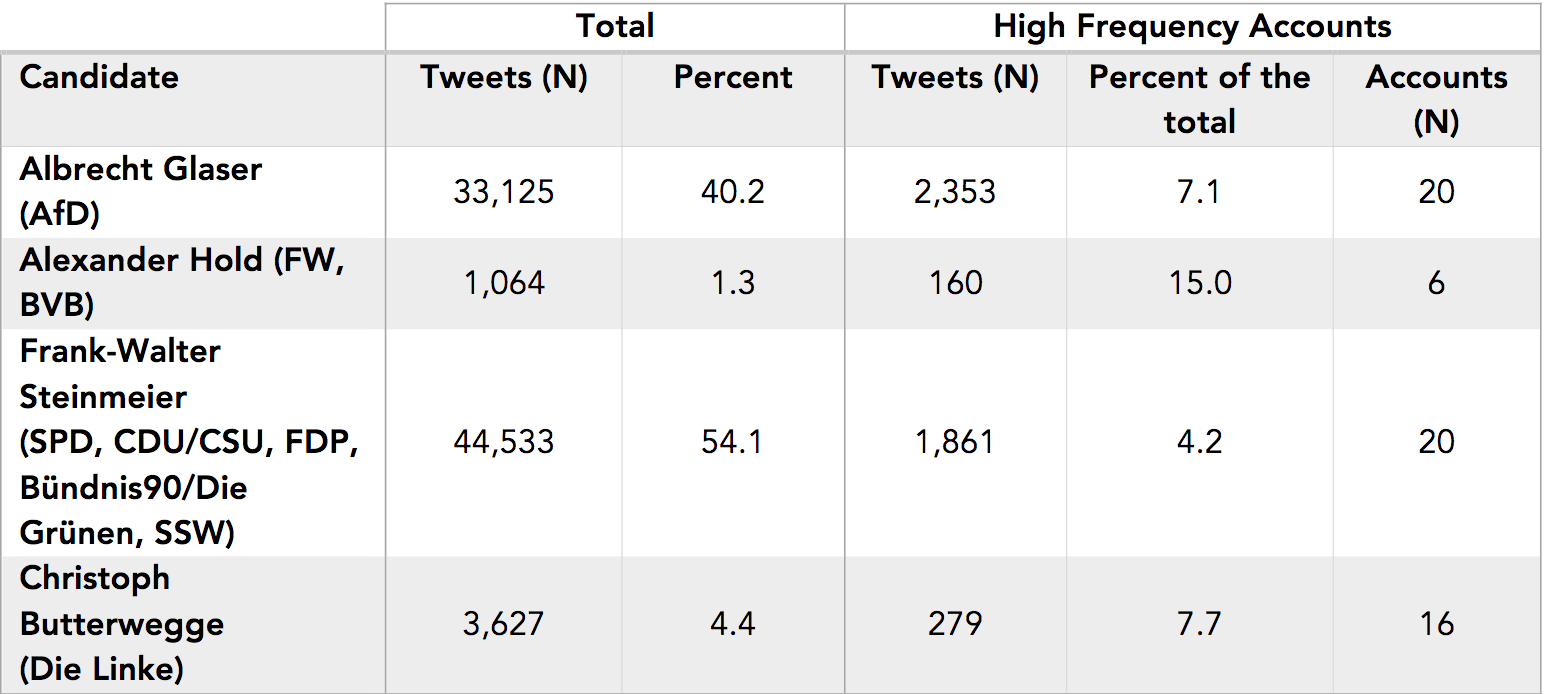

There are many different kinds of political bots, and whether you think a certain one is ‘good’ or ‘bad’ will probably depend on your political views. For example, the bot @ilduce2016 had only one purpose, which was to tweet quotes from Benito Mussolini to Donald Trump with the hashtag #makeamericagreatagain. It did this tirelessly for months, until one day it was successful and Trump retweeted a Mussolini quote, causing a small scandal (although in the context of Trump it was a very small scandal). The political bots that people are more worried about, however, are those who real people think are human and engage in conversation with. Although it becomes obvious after a while that you’re not speaking to a person, political bots can have serious influence on how people perceive political candidates over Twitter. They become a part of the conversation and the fact that they’re not real people can get easily lost in the stream of activity. They are also usually more actively supporting conservative political candidates, so in a country like Germany where there is fear of a right-wing surge such as the one that just happened in the United States, recognizing online bots is a big topic.
Dawn Hightree, a user tweeting to Merkel seems like she could be a bot…

They can be, however, hard to recognize when just looking at one or two of their tweets. More of their tweets taken together or a look at their profile can usually alert someone that there are issues with the user, but even then it is not so obvious. They don’t look too different from real people users, and sometimes users that are real people look like chatbots!
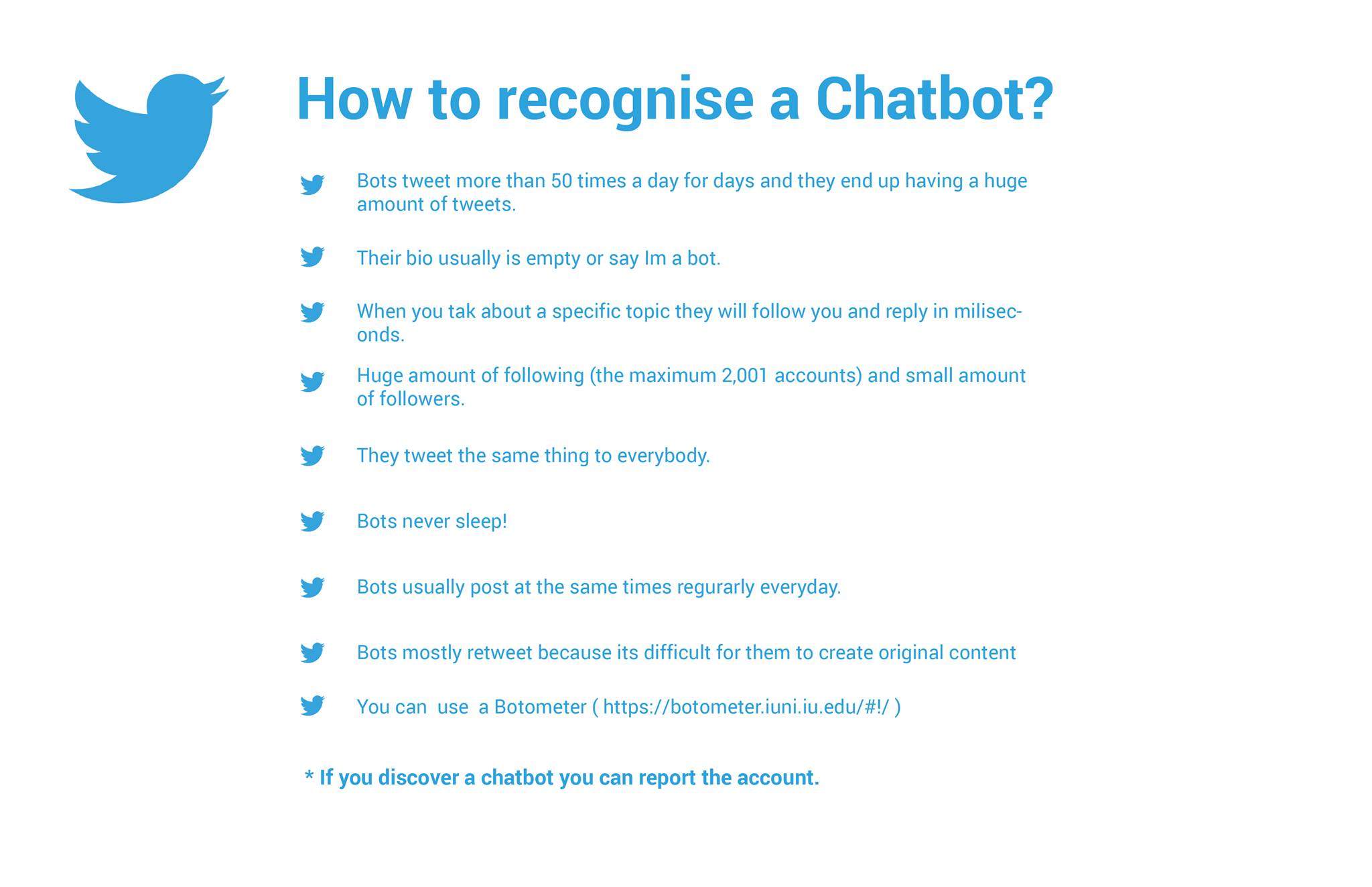
Coming back to Dawn, a look at her profile tells us that she *might* be a bot. She has a high following to follower ratio, no bio, and tweets quite often about the same kinds of topics. However, her tweets are not all the similar and she has some pictures of herself, so it is hard to tell.

Our bot or not tool says…

Probably not a bot. Let’s check out the Mussolini bot we talked about earlier:
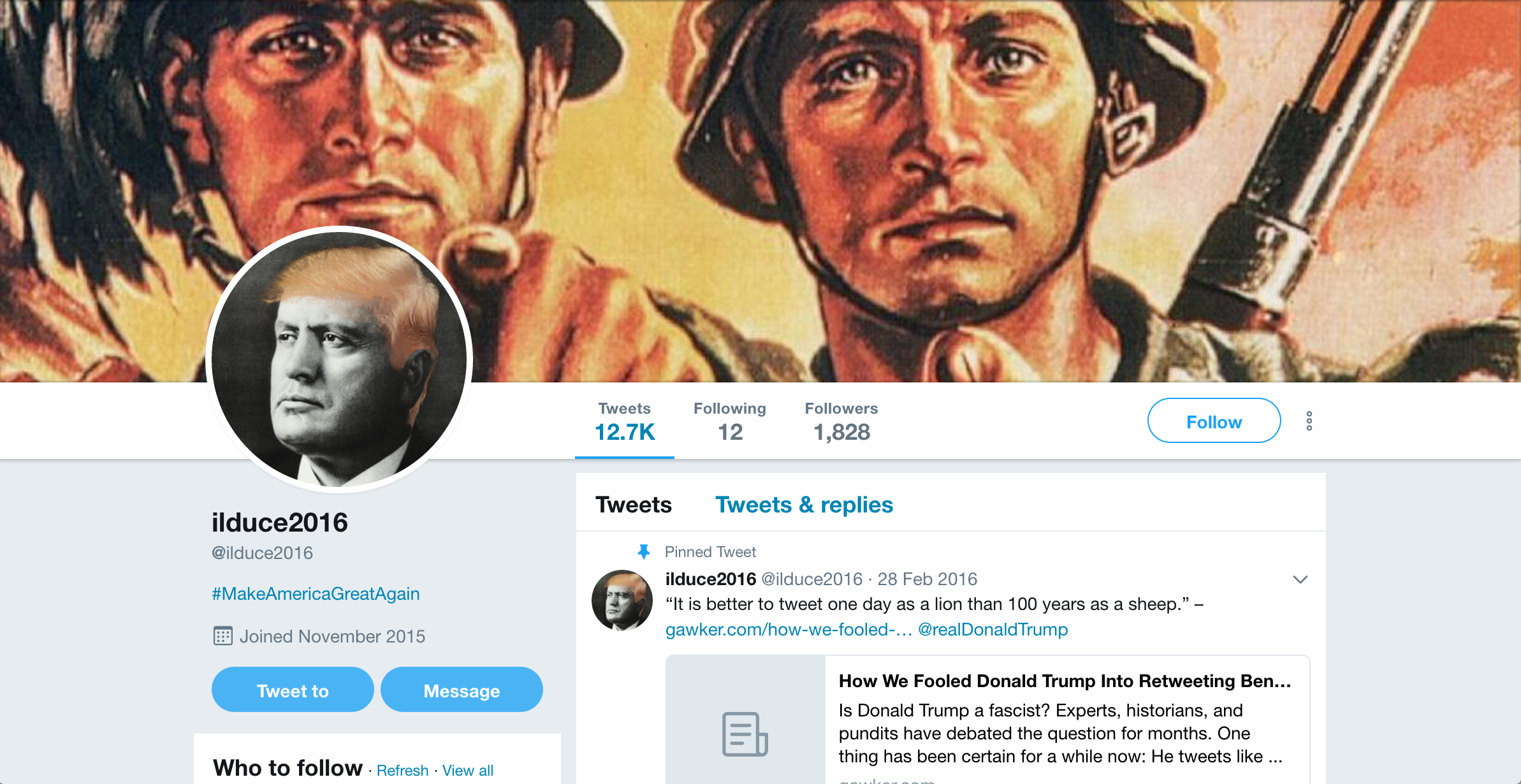
Seems like a bot! And with the tool?

This also shows the limitations of our tool though, as it only ranks at 47% overall, even though the content comes in as 88% bot.
Additionally, artificial intelligence is being used to make bots seem more like real people, which can have some interesting/ fun uses. In the context of political bots on Twitter, however, this is going to make bots much harder to spot, which is going to have much more serious influence on elections in the future. Imagine you’re having an engaging conversation on Twitter about a political candidate and they provide some convincing arguments as to why the candidate is better or worse than you previously thought. Unbeknownst to you though, the person you’re speaking to is a bot employing AI, continuously searching the web for arguments that are going to be perfect to change your mind. Here’s an example of a bot that you might not recognize just from the tweets (if it didn’t say bot in the title):
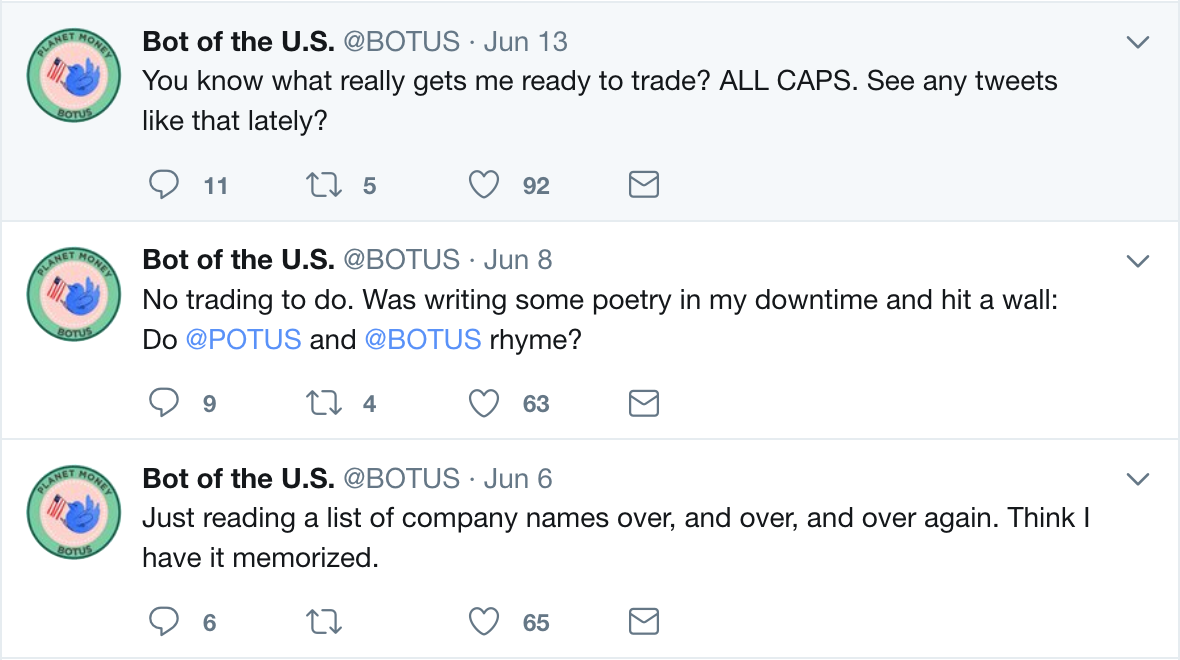
But from the profile is clearly automated

And the Botometer?

With the development of AI, and the desire to hide a bot from detection, the profile could easily be changed to look more ‘real’. In a world where a huge amount of people get their news from social media, elections could be determined by which party has the capability to have more influence online.
And the tool if you want to check it out:
https://botometer.iuni.iu.edu/#!/

